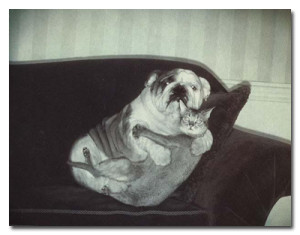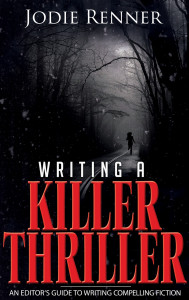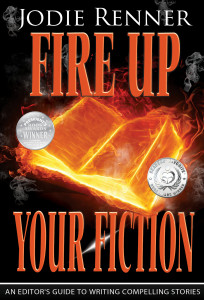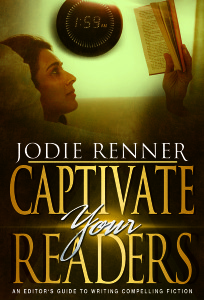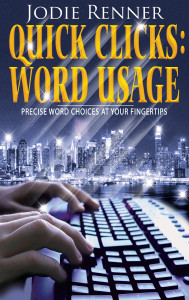by Tom Combs, physician-author, www.tom-combs.com 
In 2007, after twenty-five years as an emergency medicine specialist working in the ERs of busy inner-city level-one trauma centers, a personal health event ended my medical career. I’d worked briefly as a technical writer prior to medical school, but for the last eight years have been able to focus full-time on the study and creation of fiction.
The Kill Zone and its contributors have been a daily part of my writing life for years. I contacted Kathryn Lilley a few weeks back to share news of the release of the second book in my medical suspense-thriller series and mentioned my long-term involvement with TKZ. She suggested I guest blog and share how TKZ has influenced my writer’s journey. Specifically she mentioned that she believed my experience “would be inspiring to others, and spread cheer to my fellow bloggers!” I hope so.
Here are some ways TKZ has helped me on my journey from aspiring fiction writer to indie publisher of two well-received thrillers:
Instruction on craft
TKZ provides ongoing instruction on the craft of writing fiction that engages and sells.
James Scott Bell, Jodie Renner, PJ Parrish (Kris), Jordan Dane, Larry Brooks, and all the TKZ contributors regularly share the essence of their experience and hard-gained knowledge. I realize I’m preaching to the choir when I identify that the writing instruction presented on TKZ is ninja-level. The TKZ bloggers are the faculty of an online academy. Note: many of most useful posts are organized by topic in the TKZ Library (click HERE or on “TKZ Library” in the banner above).
Philosophy, support, and guidance
All readers here know the writer’s life can be tough at times. Self-doubt, frustration, discouragement, and disappointment are all part of the journey. I’m certain the honesty, humor, and sage counsel of TKZ’s “usual suspects” has assisted many a writer get over the rough spots. It has definitely helped me.
First page submission
By 2012, I’d been a TKZ follower for years and felt as if I knew the faculty and their personalities. I’d missed the submission deadline for the initial and subsequent “First Page” critiques and regretted having lost out on the great opportunity.
In 2012, I submitted on time. My mouth went dry on April 12, when I saw that TKZ emeritus John Ramsey Miller had rendered the critique of my work. JRM was a particular favorite of mine and, among his traits is a no-BS, flame-throwing honesty. I approached his critique with fear and trepidation. His favorable response to my submission gave me a lift unlike any I’d experienced in writing to that point. It is a treasured memory in my TKZ history.
The comments beneath the critique provided education on the varied and subjective nature of opinion/review – “dang excellent,” “this is brilliant,” “it’s not without problems,” “I’m hooked,” “wouldn’t have hooked me in any way,” etc. This provided additional education on the realities of writing.
Top-shelf editor
Years back, a TKZ guest blogger presented an article on craft that blew me away with its content and clarity. I learned that the writer, Jodie Renner, had edited two of Joe Moore’s novels. Jodie became a TKZ regular for a few years, and followers benefitted from her many outstanding articles on craft as well as her three writing guides. I did even better – after her guest piece, I was able to convince Jodie to work with me, and we have collaborated on both of the books in my series. She is amazing as both an editor and a friend – another major personal and professional benefit of my involvement with TKZ.
James Scott Bell and the TKZ faculty
I can’t recall if I discovered James Scott Bell first and it led to TKZ or the reverse. The discovery of both was definitely a boon to my writing development and career. JSB’s savvy, humor, enthusiasm, and guidance on both craft and the writer’s life is special and representative of the warmth, wisdom, and generosity of the TKZ faculty, both current and past. I attended Jim’s outstanding “Story Masters” seminar with his teaching partners, Donald Maass, and Chris Vogler, where I learned a great deal while laughing often (JSB could do stand-up comedy).
James Scott Bell’s enthusiasm, professionalism, and support of other writers is characteristic of my experience with TKZ.
I’m not certain I can inspire TKZ followers, but I can unequivocally recommend ongoing participation. The return on investment is astronomical – how can you beat free writing wisdom? TKZ is a writing travel guide that is updated daily for those who seek excellence.
I share Kathryn’s hope that her fellow bloggers/faculty will feel cheered. These people deserve to feel good about themselves. The hours, effort, and imagination invested in creating the daily posts are considerable. Despite receiving little in return, they share their knowledge and support every day.
Thank you to TKZ faculty, current and past, for your continuous commitment to helping writers. Your efforts are, and have been, a special part of my writer’s journey. I’m certain there are many among the TKZ faithful who have benefitted as I have.
I’m thrilled to have the opportunity to share my appreciation today.
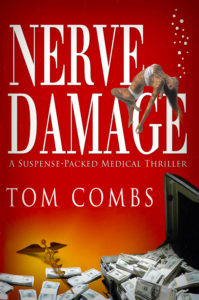 Do you have examples of how TKZ has helped you on your writer’s journey? Please share in the comments below.
Do you have examples of how TKZ has helped you on your writer’s journey? Please share in the comments below.
Nerve Damage, the first book in my medical suspense-thriller series, was released in 2014. The response has been excellent, with more than 200 five-star Amazon reviews, wonderful personal comments from discriminating readers, and glowing independent book reviews.
Hard to Breathe, the second installment in the Drake Cody suspense-thriller series, is now available.
ER doctor and medical researcher Drake Cody has a past no physician is allowed to have. When an injured woman presents to the ER with a report of a fall, Drake reports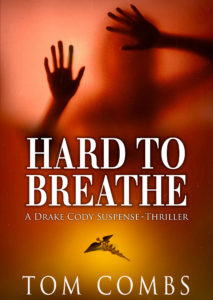 to police his suspicion that her powerful businessman husband is guilty of domestic violence. Within hours, Drake’s medical license and the rights to his breakthrough experimental drug are threatened.
to police his suspicion that her powerful businessman husband is guilty of domestic violence. Within hours, Drake’s medical license and the rights to his breakthrough experimental drug are threatened.
Murder, billion-dollar intrigue, and corruption involving the most powerful elements in healthcare threaten Drake’s career, those he loves, and his life. Can the law deliver justice, or will it abandon him?
“Intense and highly entertaining. Combs’ writing grips you from the first chapter and never lets go. Very cinematic and intense. Speeds the reader from chapter to chapter at a breakneck pace. Hard to Breathe is a terrific book.” – Laura Childs, New York Times best-selling author
Nerve Damage and Hard to Breathe provide an insider’s exposure to the blast-furnace emotions of critical care medicine and the high-stakes “business” of healthcare and its mega-dollar temptations.
Both books are fast-paced, intense, twisting thrill rides involving individuals you care about and medical realities that affect us all.

